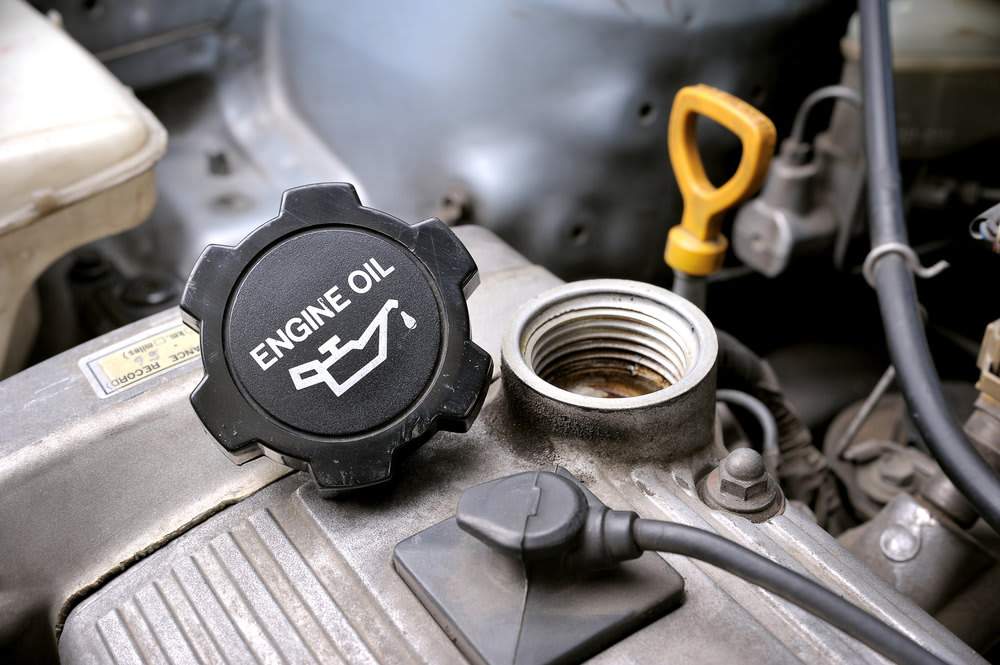

In terms of taking care of your car, there's not much more important than changing oil. The reason 5W-30 and 5W-20 motor oils are so common is because they work very well with a wide range of engines. Most often, these types of oils best cover the range of possible temperatures, with a 5W-20 oil more geared toward colder climates and a 5W-30 oil more appropriate for warmer temperature extremes. For the most part, either one should work just fine in an engine regardless of the prevailing temperatures.
The difference between 5W-30 and 5W-20 motor oil
The main difference between 5W-30 and 5W-20 motor oil is that the latter is less viscous (or thick). When used in a vehicle's engine, 5W-20 oil creates less friction due to its thinner viscosity, meaning it causes less drag across engine parts like the crankshaft, valvetrain, and pistons. This can provide a slight bump in fuel efficiency.
The thinner nature of 5W-20 oil also allows the oil pump to move it from the oil pan to the rest of the engine more easily. This makes 5W-20 preferable for very cold climates, when having thinner oil that can flow easily on start-up is important. Where 5W-30 comes into play is in hotter climates where thin oil tends to break down under higher temperatures. This translates into the strength of the 5W-30 oil keeping it from breaking down as quickly as the 5W-20 oil, providing better overall engine part protection.
Single viscosity vs. multiviscosity oil
Designed to operate in a multitude of temperature ranges, a multiviscosity oil represents one of the best motor oils for cars. The single viscosity oils of the past provided protection during either hot or cold weather, depending in large part on the weight, or lower temperature extreme at which they operated. This usually meant using a 5W-30 oil in the fall and winter and a 10W-30 in the spring and summer.
A multiviscosity oil, on the other hand, uses special additives to improve the viscosity of the oil. Called, ironically, viscosity improvers, these additives expand as the oil heats up, providing a higher viscosity at warmer temperatures. After the oil cools, these improvers shrink, making the oil thinner, best for use during cooler engine operation.
How oil additives help clean and protect an engine
Oil manufacturers use additives in oil for cars to improve the performance of the oil when it comes to lubrication. In addition, some other affects of additives in oils include cleaning engine deposits from engine parts, inhibiting corrosion or rust inside the engine, and keep the oil from breaking down as bad either due to oxidation or extreme temperatures.
Which oil should vehicle owners use?
When looking for a motor oil that works best in your vehicle, keep certain factors in mind. While not a lot of difference exists between the protection provided by a 5W-30 AND 5W-20 oil, there is a slight difference in the viscosity levels of each. The thicker 5W-30 should see a slight advantage when operating at higher temperatures, while the thinner 5W-20 oil should provide better engine protection at lower temperature levels and has the added benefit of slightly improving fuel efficiency.
The flexibility of today's synthetic motor oil means that both 5W-30 and 5W-20 oils work equally well to protect your engine regardless of the climate or season. Mobil 1 provides a wide range of multiviscosity oils to suit your engine. YourMechanic brings top-quality Mobil 1 synthetic or conventional oil to every mobile oil change.



